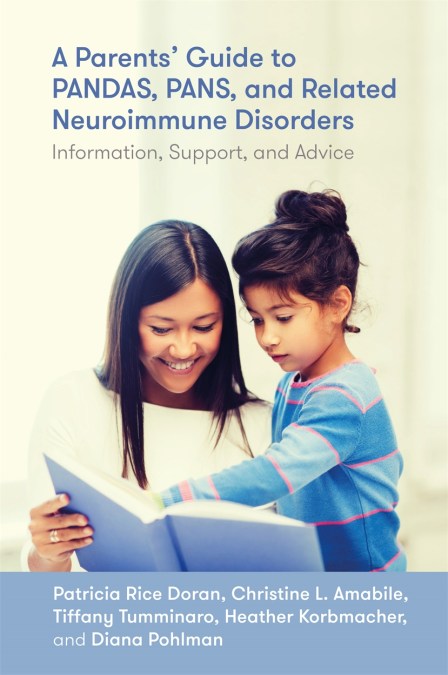Having a child who suddenly develops PANDAS (Pediatric Autoimmune Neuropsychiatric Disorders Associated with Strep), PANS (Pediatric Acute-onset Neuropsychiatric Syndrome) or related conditions such as encephalitis can be a daunting challenge for parents. This clear guide explains the symptoms and diagnosis of PANDAS and PANS, with treatment options and recommended strategies for supporting children at home, at school, and in community settings.
The book covers key symptoms including OCD, tics, anxiety, sensory issues and personality changes, with practical advice on medical management, nutrition, lifestyle, and addressing social and behavioural needs. Each chapter also includes handy sidebars with key information to remember, and action steps for overcoming challenges, managing relapse, family self-care and providing children with the best possible support.
The book covers key symptoms including OCD, tics, anxiety, sensory issues and personality changes, with practical advice on medical management, nutrition, lifestyle, and addressing social and behavioural needs. Each chapter also includes handy sidebars with key information to remember, and action steps for overcoming challenges, managing relapse, family self-care and providing children with the best possible support.
Newsletter Signup
By clicking ‘Sign Up,’ I acknowledge that I have read and agree to Hachette Book Group’s Privacy Policy and Terms of Use
Reviews
A Parent's guide to PANDAS, PANS and Related Neuroimmune Disorders is dramatic as it is revealing written by those on the front-line of these debilitating illnesses. This highly-readable guide forces us rethink our definitions of mental illness. Above all, this guide offers coping strategies, hope and optimism the general medical community is unable to give.
A Parents' Guide to PANDAS, PANS and Related Neuroimmune Disorders will be a dog-eared, high-lighted, bookmarked constant companion for parents of children with PANS! It packs practical recommendations for parents from parents, with illustrative case vignettes, up-to-date information, and tools for navigating the journey to healing. It will help parents understand these disorders, work collaboratively with medical and educational professionals and care for their children and themselves. I will recommend it to my patients' families and their medical and educational care teams.
